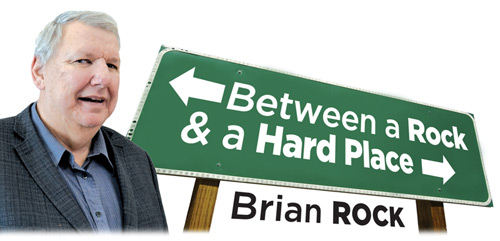Are we really headed to another Tyranny of the Majority that will last for the next four years + ?

“The tyranny of the majority is an inherent weakness to majority rule in which the majority of an electorate pursues exclusively its own objectives at the expense of those of the minority factions. This results in oppression of minority groups comparable to that of a tyrant or despot.” argued John Stuart Mill in his 1859 book On Liberty.
Recent public opinion polls scare the hell out of me! We are seeing results with la Coalition Avenir Québec garnering around 46 % of the votes province wide with over 50 % of the francophone vote.
In a National Assembly of Québec with five political parties all holding seats and intending to run candidates in all 125 ridings in the province, one-third of the votes cast in the provincial general election would probably result in a majority of 63 seats and more.
What will 46 % of the votes garner? Political analysts are suggesting between 100 and 110 CAQ seats. Let us take a stroll down the avenue of political history. In the provincial general election of 1948, Maurice Duplessis’ Union nationale won 82 out of the 92 seats with 51.24 % of the votes, the Quebec Liberal Party won only eight seats, and two independent candidates were also elected. It took twelve years for the QLP under Jean Lesage to return to power in the 1960 election.
In the provincial general election of 1973, Robert Bourassa’s QLP captured 102 of the 110 seats with 54.65 % of the votes, le Parti Québécois winning six seats, and le Ralliement créditiste two. It took only three years for le Parti Québécois to capture power for the first time under René Lévesque in 1976.
Remembering that in the last general election, the following parties received a substantial number of votes:
la Coalition Avenir Québec, Québec Liberal Party, Québec solidaire, le Parti Québécois, Conservative Party of Québec, New Democratic Party of Québec, and Green Party of Québec; we are expecting candidates of le Bloc Montréal and the Canadian Party of Quebec, and perhaps as well of the Quebecers United for Equality Party. We will also have a number of independent candidates and those of political fringe parties as well. We will need a road map in some ridings where on a regular basis ten or more candidates are on the ballot paper. The October 2nd, 2022 general election promises to have overloaded ballots in many ridings.
What is increasingly troubling is the CAQ’s obsession with collective rights. Human rights and freedoms are protected by the Canadian Charter of Rights and Freedoms which is enshrined in the Canadian Constitution, and the Quebec Charter of Human Rights and Freedoms. The CAQ government repeatedly uses le bâillon: closure to limit and terminate debate in the National Assembly. It has imposed the Notwithstanding Clause on too many occasions to override both the Canadian and Quebec Charters.
As Laws 21 and 40 proceed through the Quebec court system towards the Supreme Court of Canada, they have been joined to form a trio with Law 96 recently enacted by the National Assembly of Québec. It will be very interesting to witness the promised intervention of the Federal Government through the Ministry of Justice and Attorney General of Canada in these court challenges.
It is extremely important for voters to follow the Quebec political landscape as closely as they can, as we count down to voting day on Monday, October 2nd, 2022!

